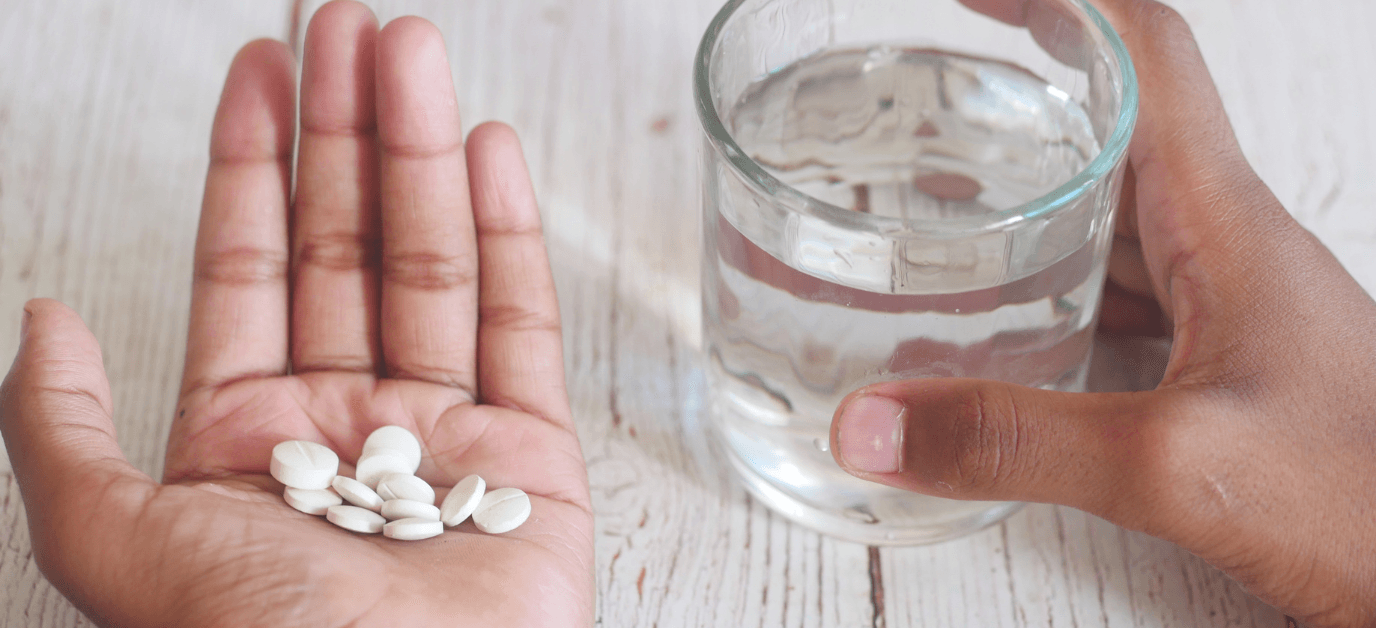

The benefits of Caffeine
12.06.2025Recommended products
What is Caffeine?
Caffeine is a central nervous system stimulant. It is naturally found in coffee and cacao beans, tea and yerba mate leaves, guarana berries.
Caffeine is often used as a psychoactive substance because it affects how our brains function. As a result, it can affect our mood, awareness, and behaviour.
For example, caffeine [1] can improve our focus, increase alertness and endurance, reduce fatigue, and enhance our mood. In athletes [2], caffeine also offers performance benefits such as faster reaction time.
Although available in many forms, caffeine tablets provide the above-mentioned benefits without affecting our caloric intake. This is not only useful in sport and exercise, but also noteworthy in other dietary contexts.
Replacing caffeinated beverages with caffeine tablets can provide effective energy conveniently. It does so by helping us feel less tired [3] and remain more active.

Caffeine can also help regulate bodyweight [4]. Because it can help us sustain physical activity and minimise appetite, caffeine can aid weight loss. However, it is important to note that intake should be regulated, as too much caffeine [5] can impair sleep and impact proper rest and recovery.
It is also possible that caffeine can aid muscle recovery. This is because it not only has natural antioxidants, but it also reduces levels of uric [6] acid in the blood.
Research has shown that caffeine is associated with higher production of glycogen [7]. Glycogen is the primary source of glucose in the body and our main source of energy. As a result, caffeine helps to restore muscle glycogen stores faster and reduce delayed [8] onset muscle soreness.
As well as increased brain functioning and performance benefits, the antioxidants in caffeine can help to counteract disease. This includes disease such as type 2 diabetes [9], dementia [10], and different cancers [11]. This is because its antioxidant properties help to reduce cell inflammation and oxidative stress [12].
Finally, caffeine has anti-aging effects. For example, its antioxidant properties can protect against free radicals [13]. It also aids blood circulation [14] which is associated with prevention of hair loss and skin plumpness. That said, there is also some evidence that high caffeine consumption can inhibit collagen [15] production and cause dehydration. Both of which can affect our skin.

How much caffeine?
Recommended [16] safe amounts of caffeine per day vary. For most healthy adults, up to 400mg per day is associated with countless benefits. For women who are breastfeeding or pregnant, up to 200mg per day is considered safe.
However, it is important to be aware of individual tolerance and potential risks of excess caffeine such as anxiety, insomnia, and increased heart rate.
Sources:
[1] https://pmc.ncbi.nlm.nih.gov/articles/PMC8467199/
[2]https://www.sciencedirect.com/science/article/abs/pii/S0765159722000934#:~:text=Caffeine%20supplementation%20is%20efficient%20in,60%20minutes%20of%20caffeine%20ingestion.
[3] https://pubmed.ncbi.nlm.nih.gov/11283304/
[4]https://pmc.ncbi.nlm.nih.gov/articles/PMC10609622/#:~:text=The%20influence%20of%20caffeine%20to%20increase%20fat,body%20weight%20reduction%20and%20fat%20mass%20loss.&text=The%20higher%20fat%20oxidation%20rate%20at%20rest,for%20those%20individuals%20seeking%20body%20fat%2Dmass%20loss.
[5]https://pubmed.ncbi.nlm.nih.gov/39458438/#:~:text=Caffeine%20intake%20altered%20recovery%20sleep,spectral%20density%20during%20NREM%20sleep.
[6]https://www.sciencedirect.com/science/article/pii/S0021925820740226?ref=cra_js_challenge&fr=RR-1
[7]https://pmc.ncbi.nlm.nih.gov/articles/PMC8537367/#:~:text=Coffee%20is%20one%20of%20the,post%2Dexercise%20muscle%20glycogen%20recovery.
[8]https://pmc.ncbi.nlm.nih.gov/articles/PMC6548757/#:~:text=Aside%20from%20affecting%20sleep%2C%20caffeine,muscle%20damage%20and%20training%20load.
[9]https://pmc.ncbi.nlm.nih.gov/articles/PMC3834513/#:~:text=Habitual%20coffee%20consumption%20has%20been,on%20CVD%20and%20dementia/AD.
[10]https://pmc.ncbi.nlm.nih.gov/articles/PMC7554764/#:~:text=The%20studies%20have%20suggested%20that,features%20of%20these%20neurodegenerative%20diseases.
[11]https://pmc.ncbi.nlm.nih.gov/articles/PMC4186696/
[12]https://www.sciencedirect.com/science/article/pii/S2214623717300674#:~:text=Ingestion%20of%20coffee%20(which%20is,attributed%20to%20polyphenols%20and%20melanoidins.
[13]https://pubmed.ncbi.nlm.nih.gov/16685044/
[14]https://pmc.ncbi.nlm.nih.gov/articles/PMC10718232/
[15]https://pmc.ncbi.nlm.nih.gov/articles/PMC4206198/#:~:text=Conclusion,synthesis%20in%20human%20skin%20fibroblasts.
[16] https://www.fda.gov/consumers/consumer-updates/spilling-beans-how-much-caffeine-too-much


